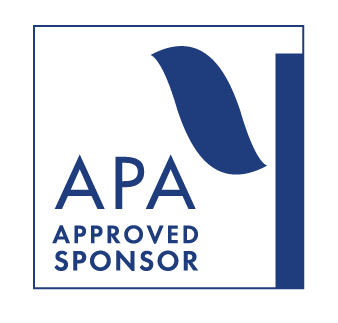Clinical Supervision: Easing the Agony
- Topic Areas:
- Supervision
- Categories:
- Live Webinar | Friday
- Speaker:
- Paul Block
- Course Levels:
- Intermediate to Advanced
- Duration:
- 7 Hours 30 Minutes
- License:
- Never Expires.
Producer: VPA/Brattleboro Retreat
Description
This training presents a formulation-driven conceptual approach to providing administratively- and professionally-effective clinical supervision. The goal of supervision is guiding trainees to meet individual professional development goals and needs. By designing the administrative relationship and training based on professional formulations, this enables supervisors to offer supervisees the most relevant, helpful, and collaborative professional development experience..
Further, using evaluation standards based on trainees’ growth in response to formulation-guided training interventions also changes supervisors’ approach to diversity, equity, and inclusiveness considerations given the historic structural and systemic biases that disadvantage and exclude trainees of color and of non-majority personal backgrounds.
Credits
 The Vermont Psychological Association is approved by the American Psychological Association to sponsor live continuing education for psychologists. The Vermont Psychological Association maintains responsibility for its programs and their content.
The Vermont Psychological Association is approved by the American Psychological Association to sponsor live continuing education for psychologists. The Vermont Psychological Association maintains responsibility for its programs and their content.
Completion of this course earns 6 continuing education credits. Psychologists licensed in states whose licensing board approves continuing education offered by APA-approved sponsors may earn continuing education credits for this course.
Continuing education courses sponsored by the Vermont Psychological Association are pre-approved by the Vermont Office of Professional Regulation for continuing education credit for licensed independent clinical social workers in Vermont. This course provides 6 CE credits for Vermont licensing.
This course has been approved for continuing education credit by the Vermont Board of Allied Mental Health and earns 6 continuing education credits.
The Vermont Psychological Association is approved by the American Psychological Association to offer continuing education for psychologists. These credits are also accepted by the New Hampshire Board of Mental Health Practice for clinical social workers licensed in New Hampshire, as provided in Mhp 402.02(b)(1). The course qualifies for 6 continuing education credits.
The Vermont Psychological Association is approved by the American Psychological Association to offer continuing education for psychologists. These credits are also accepted by the New Hampshire Board of Mental Health Practice for clinical mental health counselors licensed in New Hampshire, as provided in Mhp 402.02(b)(1). The course qualifies for mandated credit types as follows:
Ethics:
Suicide Prevention:
The Vermont Psychological Association is approved to offer continuing education to licensed clinical social workers by the Vermont Office of Professional Regulation, and is approved by the American Psychological Association to offer continuing education to psychologists. This course thus qualifies for 7.2 continuing education credits for Massachusetts licensed clinical social workers in Massachusetts under 258 C.M.R. §§ 31.04(2)(d), 31.04(5).
The Vermont Psychological Association is approved to offer continuing education to licensed clinical social workers by the Vermont Office of Professional Regulation, and is approved by the American Psychological Association to offer continuing education to psychologists. This course thus qualifies for 7.2 continuing education credits for Massachusetts licensed certified social workers in Massachusetts under 258 C.M.R. §§ 31.04(2)(d), 31.04(5).
This course has been approved by the Massachusetts Mental Health Counselors Association for continuing education credit for licensed mental health counselors in Massachusetts. MaMHCA Approval # 23-0107
The Vermont Psychological Association is approved by the American Psychological Association as a continuing education sponsor for psychologists. Continuing education credit in the amount of 6 credits earned in this course may be accepted by the Connecticut Department of Public Health for licensed clinical social workers under Conn. Agencies Regs. § 20-195o(c)-3.
This course is pre-approved for credit for Connecticut licensed professional counselors under Conn. Agencies Regs § 20-195cc-3(a)(1). This course qualifies for 6 continuing education credits.
The Vermont Psychological Association is recognized by the New York State Education Department’s State Board for Psychology as an approved provider of continuing education for licensed psychologists #PSY-0210. This course qualifies for 6 continuing education contact hours.
Handouts
| Speaker Slides (864 KB) | 17 Pages | Available after Purchase |
| Course Summary (91.2 KB) | 9 Pages | Available after Purchase |
Speaker

Paul Block Related Seminars and Products
Paul Block, PhD, is an associate professor at William James College and has been supervising clinical research assistants, practicum and internship students, post-docs, practicing professionals, supervisors, program directors, and senior managers for over 35 years. His early research at the University of Denver on a measure of supervision experiences accounted for EPPP scores and post-graduate salaries, and his more recent research developing a measure of clinical supervision effectiveness uses student experiences to identify multiple dimensions of supervisor effectiveness. He has regularly presented a formulation-driven professional supervisor training programs, and uses a formulation-focused approach in his own supervision and training responsibilities at William James College.
Course Objectives
Objective 1List at least 3 considerations of appropriate administrative and legal arrangements for effective clinical supervision.
Objective 2
Describe how individualized professional formulations can influence administrative and legal arrangements for clinical supervision.
Objective 3
List the 3 main obligations of clinical supervisors.
Objective 4
Describe the goal of clinical supervision.
Objective 5
Describe the essential features of formulation-driven clinical supervision.
Objective 6
Explain the Response-to-Intervention (RTI) approach to addressing clinical supervision challenges (ruptures and supervisee performance difficulties).
Objective 7
Analyze how this formulation-driven approach to clinical supervision could be applied to difficult or unusual situations.
Objective 8
Analyze how to manage a challenging DEI situation that arises in the course of supervision.
Objective 9
Describe how formulation-driven supervision addresses structural systems and by-products of advantage.



